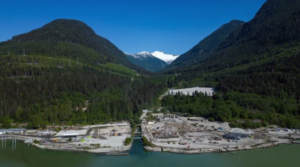
(WoodMac, 5.Sep.2023) — The global CCUS project pipeline is buoyant but scaling up needs concerted and consistent effort from governments. Only a handful of countries have policy and regulation ready to adopt CCUS today and the United Kingdom (UK) is one of them, says Mhairidh Evans, Head of CCUS Research speaking at Offshore Europe taking place in Aberdeen.
However, Wood Mackenzie analysis finds that the UK target to capture and store 20 – 30 million tonnes per annum (Mtpa) of CO2 by 2030 looks very challenging with some companies not able to progress projects due to a slowdown in the negotiations for government funding.
So, what will it take for the UK to meet its 2030 targets?
Evans highlights three conditions that need to be met if 2030 targets are to remain in sight:
- The UK Government must accelerate funding processes and private investment must flow quickly afterwards.
Wood Mackenzie estimates that delivering the first four CCUS clusters will cost £65bn and will capture and store more than 500 million tonnes of CO2 over their respective operational life-cycles. The government’s commitment of £20bn towards that is critical in unlocking the remainder of private investment.
- Companies must execute transport and storage projects within a compressed schedule.
Four CO2 transport and storage hubs – East Coast Cluster, HyNet, Acorn and Viking – will form the heart of the UK’s CCUS clusters. While technical and commercial preparations have been ongoing, none of these projects have taken FID yet. So, the challenge for these projects will be to build large-scale infrastructure in ever-shorter timelines. There are few precedents for this type of project elsewhere in the world.
- Emitters across multiple industries must apply carbon capture technically and economically.
There are close to 60 different emitting facilities that have announced an intention to apply carbon capture before 2030. These range from large scale power generating facilities to cement production and small biofuels facilities. The diversity of industry appetite is impressive and testament to net zero ambitions. But the barriers stand high and only eight projects have been selected so far. The challenge for these emitters comes in applying costly novel technology. And the complex government funding models which can address this seem difficult to access.
“CCUS is a rising global industry. There will of course be hurdles along the way, but companies should be ready to ride the megatrend. Mostly, the technical workstreams are running ahead of the commercial and regulatory ones. And there’s still a lot to do to bring emitters onboard,” Evans says during her presentation at Offshore Europe.
Evans concludes: “The UK’s CCUS targets are among the most ambitious in the world. Delivering them was always going to be a big ask. High ambitions are needed, and a missed target shouldn’t necessarily be viewed as a failure. This is about building technology and infrastructure to reduce industrial emissions for decades to come. Ultimately, the UK has all the right ingredients and is going in the right direction. We just need to go a bit faster.”
____________________

